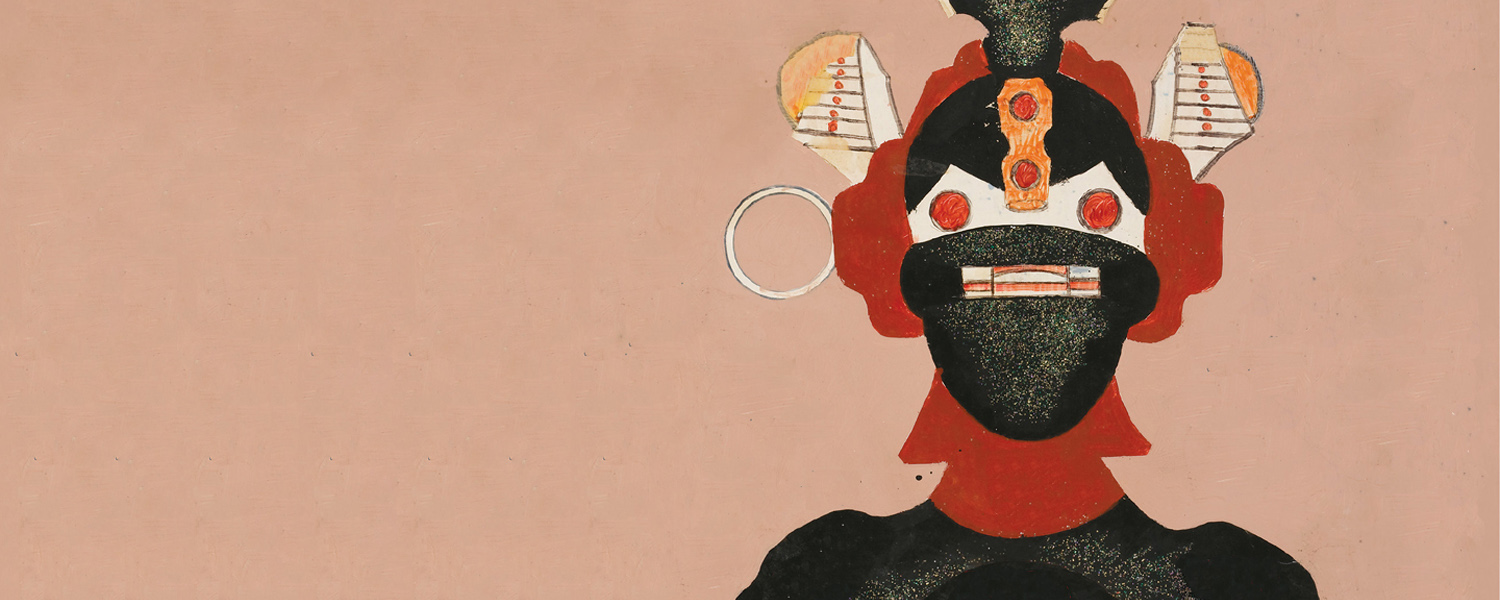With his sixth proper album, Sufjan Stevens does battle with what we've come to expect from a proper Sufjan Stevens album. This time, instead of painstakingly humanizing the locations, historical inhabitants, and trivia of a certain slab of America, he's more concerned with his own state of mind. Banjos are out; moody electronics, deep bass, and drums that burst like geysers are in. The lengthiest song title on his last LP, 2005's Illinois, was 53 words long; here, that same superlative goes to a tune called "I Want to Be Well". He's whispering less, hollering more. And at the climax of The Age of Adz, the devout Christian and poster boy for mannered indie-dude sensitivity shouts, "I'm not fuckin' around!" no less than 16 times. Believe him.
Yet, there is no mistaking this as a work by the Detroit-born, Brooklyn-dwelling overachiever. Trilling flutes, meticulously arranged choirs, and an overarching sense of hugeness are still apparent. The record's last track, "Impossible Soul", is a five-part suite that lasts more than 25 minutes and boasts harps, horns, blips, Auto-Tuned vocals, a twee-dance breakdown, some cheerleader call-and-response, and even a little trad-folk guitar picking, you know, for kicks. That single track bulges with more engaging ideas than most artists could muster in a career, and there's no one else on earth that could've come up with it. Even the record's glitched backdrop isn't entirely unprecedented; Stevens' pre-breakout 2001 instrumental album Enjoy Your Rabbit could be looked back on as a sketchbook for what would become The Age of Adz. So as Stevens' current restlessness fights it out with his past accomplishments, the listener ends up winning.
Once again there's a concept tying everything together, though it's not quite as educational-- or virtuous-- as before. The Age of Adz is a reference to Louisiana artist and self-proclaimed prophet Royal Robertson, whose work appears on the album's cover and liner notes. A paranoid schizophrenic, Robertson translated his anguish through apocalyptic sci-fi posters after his wife left him following nearly 20 years of marriage. His comic-book style pieces-- which have been shown at the Smithsonian, among other museums-- are colorful, vengeful, and crazed. They feature B-movie style robot monsters who spout cartoon captions like, [sic] "I'll distroy much town's of adultress !!WHORE'S!!" Robertson's work is a long way from the cutesy cover of Illinois, and the fact that Stevens chose such an eccentric and hate-prone avatar for inspiration this time is telling.
Because The Age of Adz is a relatively dark affair, with the 35-year-old songwriter sometimes forgoing his child-like naïveté for something more oblique and adult. Considering the triumph of style that was Illinois (and the legions of lesser lights that subsequently turned it into some sort of over-the-top Disney on Ice parody), the change of perspective is welcomed.
The record is book-ended by two quaint, characteristic acoustic passages that find Stevens reconnecting with a past love. "It's been a long long time since I've memorized your face," he starts. This is the Sufjan we know. But, in between that short intro and outro, the album tells the story of a relationship with fantastical zeal. The tale is sordid and a little absurd, filled with betrayal, selfishness, frustration, suicidal thoughts, a raging volcano, and a space ship. "I've lost the will to fight/ I was not made for life," he confesses on the title track, as robo-noises and churchly backups translate Robertson's futuristic drawings into sound.
Across the album, he relives the more harrowing aspects of a deep personal bond, pinging from bitterness ("At least I deserve the respect of a kiss goodbye," he sings over gloriously spare electro-pop on "I Walked"), to confusion ("I thought I was so in love/ Some say it wasn't true," he head-scratches on the hymn-like "Now That I'm Older", a masterclass in modern vocal arrangement), to, um, melodramatic transmogrification (referring to himself in the third person, he inhabits the Pompeii-burning volcano of "Vesuvius", singing, "Sufjan, the panic inside, the murdering ghost that you cannot ignore"). Surrounding himself with music that expertly balances between over-orchestrated and chaotic, Stevens elevates his pedestrian travails about love and lust into legendary myths in which he's rarely the hero.
Right before The Age of Adz's back-to-earth finale, Sufjan finally overcomes his emotional stupor as a host of voices join him for the singalong, "Boy! We can do much more together!/ It's not so impossible!" And then he shakes out of the grandeur, goes back to the finger picking, and sighs the album's more realistic final line: "Boy! We made such a mess together." It's an ambiguous conclusion that, like the rest of the album, was seemingly in jeopardy of not happening at all. In a Signal to Noise interview last year, Stevens said, "I definitely feel like the album no longer has any real bearing anymore. The physical format itself is obsolete; the CD is obsolete and the LP is kinda nostalgic. I'm wondering, 'What's the value of my work once these forms are obsolete and everyone's just downloading music?'" It's a valid question. But instead of succumbing to trends, Stevens barrels through with another long-form work that requires-- and rewards-- time and devotion. As important questions about music's worth in the age of free continue to swirl around him, Sufjan's still combating instant-gratification culture the best way he knows how.








